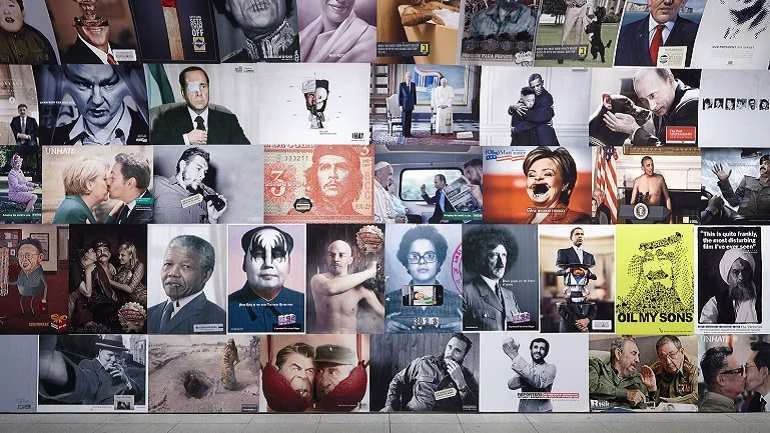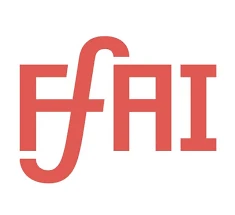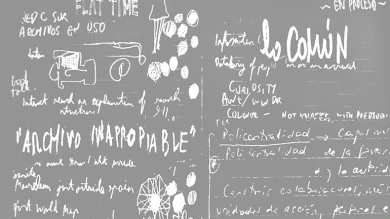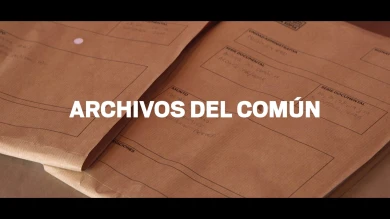-
December 11, 2015 Nouvel Building, Protocol Room
Presentation of the archive participants
Moderator: Marisa Pérez Colina (Fundación de los Comunes)
Those interested in attending must register beforehand at: centrodeestudios@museoreinasofia.es
-
December 11, 2015 Nouvel Building, Auditorium 200
Conferences
Nancy Kranich. Reclaiming the Commons: Countering Enclosure of our Archival Heritage [30 min]
Digital technologies offer unprecedented possibilities for human creativity, global communication, innovation, and access to information and knowledge. Yet these same technologies also provide new opportunities to control—or enclose— intellectual products, threatening to erode political discourse, scientific inquiry, free speech, and the creativity needed for healthy democratic discourse. To counter such enclosure, scholars, technologists, and research institutions are working together to develop information commons that promise new models for stimulating innovation, fostering creativity, and building a movement that embodies knowledge as a shared resource.
Librarians and archivists have spearheaded this movement to counter enclosure of information commons by not only opposing access controls but also developing and adopting new, exciting approaches to sharing information and advancing knowledge. They are developing new structures that promote more open access to information resources across collections, platforms and repositories. Through these efforts, they are harnessing the power and potential of technology to democratize access, thereby realizing both the metaphor and reality of information commons. To move forward, a multidisciplinary collaborative effort is needed to advance information commons that adopt open standards and collaborative governance structures in order to enable sustainable global resource sharing in the 21st century.
Ariella Azoulay. Procedurally Speaking: No Archives of the Common Without Trans-Border Restitution [30 min]
With the creation of state archives, we have been made foreign, often untrusted guests to the archives. Performing our right to these archives is one way to demonstrate that archives are not about the past but about the common. Under five centuries old imperial condition, this right can practically be performed mainly by citizens or residents of sovereign states. It can hardly be practiced by people living in formerly colonized countries in which, during centuries of imperial rule, cultural treasures were looted and expropriated, and much of this plunder was transferred and continued to be stored and displayed in archives and museums of the former imperial powers. Under the imperial condition, the dispossession of those people from their art objects and cultural infrastructures and from archival documents they have right to use, has been followed by system of borders and fences that deprive former colonized subjects from access to the sites where these treasures are stored. Under this condition, a claim to have archives of the commons, should be inseparable from the claim to restitute portions of these archives to the countries where the looting, plunder, and expropriation took place.
Break
Jorge Reina Schement. Meeting the Challenge of Meaningful Access: Connectivity, Capability, Content, and Context [30 min]
Digital technologies offer unprecedented opportunities to share information in new and expanded ways. But making information available in any given format will not, by itself, guarantee meaningful access, especially for those groups lacking or not familiar with the technologies of access necessary to retrieve the information. A community must marshal resources to make the most of the potential offered by access. For communities to exploit the benefits of access, they must mobilize connectivity, capability, content, and context—the 4C's of access.
By conceptualizing the Internet as a pluralistic domain that includes the broader context in which technical components are embedded, we explicitly connect social with technical to conceptualize the Internet as an interdependent, socio-technical network. In so doing, we emphasize the importance of context in determining community-level interventions, as well as recognize the inherent difficulty in developing “best practices” that can be applied validly across diverse settings. Thus, the goal of connectivity, which is at the heart of most policies aimed at increasing access and, represents but a small first step toward functional access and empowerment. Capability, content, and context must be woven into any strategy seeking to achieve a better informational future for all.
William Gambetta. Archives of movement: between cultural reflection and social unrest [30 min]
If memory is a way of building social domination in the field of the imaginary and the symbolic, then the archive of movements, which has played a vital role in history but has also been defeated as a political actor capable of organising the prevalent institutionalism in production and its conservation, must operate with diverse constructed logics. These are defined and implemented in the specific conditions in which this dispute is disentangled by a sense of past and present. In these times of marked social unrest, of vast technological innovations and intense mutations in social actors’ political subjectivity, the archive of movements becomes a greater problem in inventing the future in terms of collective action and the activation of social energy. Therefore, this memory of movements is paramount to debating the possible lines of action aimed at inventing other forms of institutional, social and political organisation and other models of co-existence and human relationality.
The task of archives of movements is to keep spaces for reflection and social constitution open - these have been historically opened in order to use the repository of experience in the debate on the possible directions of social transformation in the present. The activation of these repositories of experience has ties to cartography, commitment and the accessibility of the materials, narratives and micro-histories belonging to those involved in their existence. The fragmentary nature and dispersion of movements have not historically implied either a lack of coherence or intelligibility in contributions to social transformation; thus the archive of movements represents a basic mechanism of social constitution today.
Question and answer session
-
December 12, 2015 Nouvel Building, Protocol Room
Workshop Sessions
Archive policies and forms of institution
10:00 - 12:00 a.m.
Moderator: Mela Dávila (Museo Reina Sofía)
The archives of the commons must be imagined beyond the principles of exclusive and identity heritage, simultaneously combining the reality of being founded in local and politically positioned experience and the chance to be appropriated, activated and distributed in different modes, without its value being spuriously perverted. Accordingly, it must redefine its institutional structure and conceptual architecture, adapting to this collective, conceivable, open and variable nature.
Archive economies
12:30 - 2:30 p.m.
Moderator: Mabel Tapia (Red Conceptualismos del Sur)
The State has traditionally been the guarantor of material continuity and the archive economy, with this presence one of its defining characteristics. The archives of the commons is based on the withdrawal of this guarantee, yet it also has to search for logics of continuity and dissemination in a context of institutional instability, economic insecurity and the discontinuity of the specific agents it is founded upon.
Techno-political mechanisms of the common archive
4:30 - 6:30 p.m.
Moderator: Roxu Álvarez (Fundación de los Comunes)
Technological forms of archive cannot be separated from their political dimension; the Internet has become an archive in one of the central battlefields in contemporary societies. The generation of technological devices enabling exposure, hybrid and changeable taxonomies, and their collective production, as well as universal access, is a condition of possibility for the archives of the commons.
-
December 12, 2015 Nouvel Building, Auditorium 200
Round-table Discussion. The future of memory and the expropriation of the political sense of the present
Participants: Nancy Kranich, Ariella Azoulay, Jorge Reina Schement, William Gambetta and representants of the archives participants
Moderator: Carlos Prieto del Campo (Museo Reina Sofía)
Archives of the commons

Held on 11, 12 Dec 2015
In this seminar, Fundación de los Comunes, Red de Conceptualismos del Sur and Museo Reina Sofía put forward a reflection on issues of social, cultural and political memory through the work of archives that guard, transmit and produce public memory generated by the current forms of social action conservation, which also shuts out major parts of collective experience from dominant discourse. This line of research into the archive and memory of subordinate and dominant groups sets forth a powerful line of reflection on new political rights and the new characteristics of a genuinely democratic sphere that is currently traversed by a multifactorial sense of crisis with far-reaching effects on the types of collective behaviour in our societies.
Archives of the commons shines a spotlight on these debates and lines of work in an international seminar organised into tables for discussion and public presentations. It is structured around three core principles of reflection: the archive models and institutional forms that make it possible, laying out a broad cartography of repository initiatives created between the 1970s and the present day; the economies of archive and the methods and protocols that ensure its dissemination and sustainability; the possible techno-political tools for undertaking its organisation, conceived as instruments that guarantee exposure, dynamic taxonomies and universal access, an indispensable condition of common archives. Therefore, the seminar will address institutional, technological and economic models that promote the different archives brought together, transversally debating these divergent records of experience and thought via the synthesis of the local and international, the individual and the collective.
With support from the Foundation for Arts Initiatives (FfAI)
Organised by
Museo Reina Sofía, Fundación de los Comunes and Red Conceptualismos del Sur
With the support of

Más actividades
![Tracey Rose, The Black Sun Black Star and Moon [La luna estrella negro y negro sol], 2014.](https://recursos.museoreinasofia.es/styles/small_landscape/public/Obra/AD07091_2.jpg.webp)
On Black Study: Towards a Black Poethics of Contamination
Monday 27, Tuesday 28 and Wednesday 29 of April, 2026 – 16:00 h
The seminar On Black Study: Towards a Black Poethics of Contamination proposes Black Study as a critical and methodological practice that has emerged in and against racial capitalism, colonial modernity and institutional capture. Framed through what the invited researcher and practitioner Ishy Pryce-Parchment terms a Black poethics of contamination, the seminar considers what it might mean to think Blackness (and therefore Black Study) as contagious, diffuse and spreadable matter. To do so, it enacts a constellation of diasporic methodologies and black aesthetic practices that harbor “contamination” -ideas that travel through texts, geographies, bodies and histories- as a method and as a condition.
If Blackness enters Western modernity from the position of the Middle Passage and its afterlives, it also names a condition from which alternative modes of being, knowing and relating are continually forged. From within this errant boundarylessness, Black creative-intellectual practice unfolds as what might be called a history of touches: transmissions, residues and socialities that unsettle the fantasy of pure or self-contained knowledge.
Situated within Black radical aesthetics, Black feminist theory and diasporic poetics, the seminar traces a genealogy of Black Study not as an object of analysis but as methodological propositions that continue to shape contemporary aesthetic and political life. Against mastery as the horizon of study, the group shifts attention from what we know to how we know. It foregrounds creative Black methodological practices—fahima ife’s anindex (via Fred Moten), Katherine McKittrick’s expansive use of the footnote, citation as relational and loving labour, the aesthetics of Black miscellanea, and Christina Sharpe’s practices of annotation—as procedures that disorganise dominant regimes of knowledge. In this sense, Black Study is approached not as a discrete academic field but as a feel for knowing and knowledge: a constellation of insurgent practices—reading, gathering, listening, annotating, refusing, world-making—that operate both within and beyond the university.
The study sessions propose to experiment with form in order to embrace how ‘black people have always used interdisciplinary methodologies to explain, explore, and story the world.’ Through engagements with thinkers and practitioners such as Katherine McKittrick, C.L.R. James, Sylvia Wynter, Christina Sharpe, Fred Moten, Tina Campt, Hilton Als, John Akomfrah, fahima ife and Dionne Brand, we ask: What might it mean to study together, incompletely and without recourse to individuation? How might aesthetic practice function as a poethical intervention in the ongoing work of what Sylvia Wynter calls the practice of doing humanness?

Intergenerationality
Thursday, 9 April 2026 – 5:30pm
This series is organised by equipoMotor, a group of teenagers, young people and older people who have participated in the Museo Reina Sofía’s previous community education projects, and is structured around four themed blocks that pivot on the monstrous.
The third session gazes at film as a place from which to dismantle the idea of one sole history and one sole time. From a decolonial and queer perspective, it explores films which break the straight line of past-present-future, which mix memories, slow progress and leave space for rhythms which customarily make no room for official accounts. Here the images open cracks through which bodies, voices and affects appear, disrupting archive and questioning who narrates, and from where and for whom. The proposal is at once simple and ambitious: use film to imagine other modes of remembering, belonging and projecting futures we have not yet been able to live.

Remedios Zafra
Thursday March 19, 2026 - 19:00 h
The José Luis Brea Chair, dedicated to reflecting on the image and the epistemology of visuality in contemporary culture, opens its program with an inaugural lecture by essayist and thinker Remedios Zafra.
“That the contemporary antifeminist upsurge is constructed as an anti-intellectual drive is no coincidence; the two feed into one another. To advance a reactionary discourse that defends inequality, it is necessary to challenge gender studies and gender-equality policies, but also to devalue the very foundations of knowledge in which these have been most intensely developed over recent decades—while also undermining their institutional support: universities, art and research centers, and academic culture.
Feminism has been deeply linked to the affirmation of the most committed humanist thought. Periods of enlightenment and moments of transition toward more just social forms—sustained by education—have been when feminist demands have emerged most strongly. Awareness and achievements in equality increase when education plays a leading social role; thus, devaluing intellectual work also contributes to harming feminism, and vice versa, insofar as the bond between knowledge and feminism is not only conceptual and historical, but also intimate and political.
Today, antifeminism is used globally as the symbolic adhesive of far-right movements, in parallel with the devaluation of forms of knowledge emerging from the university and from science—mistreated by hoaxes and disinformation on social networks and through the spectacularization of life mediated by screens. These are consequences bound up with the primacy of a scopic value that for some time has been denigrating thought and positioning what is most seen as what is most valuable within the normalized mediation of technology. This inertia coexists with techno-libertarian proclamations that reactivate a patriarchy that uses the resentment of many men as a seductive and cohesive force to preserve and inflame privileges in the new world as techno-scenario.
This lecture will address this epochal context, delving into the synchronicity of these upsurges through an additional parallel between forms of patriarchal domination and techno-labor domination. A parallel in which feminism and intellectual work are both being harmed, while also sending signals that in both lie emancipatory responses to today’s reactionary turns and the neutralization of critique. This consonance would also speak to how the perverse patriarchal basis that turns women into sustainers of their own subordination finds its equivalent in the encouraged self-exploitation of cultural workers; in the legitimation of affective capital and symbolic capital as sufficient forms of payment; in the blurring of boundaries between life and work and in domestic isolation; or in the pressure to please and comply as an extended patriarchal form—today linked to the feigned enthusiasm of precarious workers, but also to technological adulation. In response to possible resistance and intellectual action, patriarchy has associated feminists with a future foretold as unhappy for them, equating “thought and consciousness” with unhappiness—where these have in fact been (and continue to be) levers of autonomy and emancipation.”
— Remedios Zafra

ARCO2045. The Future, for Now
Saturday 7, March 2026 - 9:30pm
The future, its unstable and subjective nature, and its possible scenarios are the conceptual focus of ARCOmadrid 2026. A vision of the future linked to recent memory, a flash of insight into a double-edged sword. This year's edition, as in the previous two, will once again hold its closing party at the Reina Sofia Museum. This time, the star of the show is Carles Congost (Olot, Girona, 1970), one of the artists featured in the new presentation of the Collections recently inaugurated on the 4th floor of the Sabatini Building.
Carles Congost, with his ironic and timeless gaze, is responsible for setting the tone for this imperfect future, with a DJ session accompanied by some of his works in the Cloister on the first floor of the Sabatini Building of the Museo on the night of Saturday 7 March.

27th Contemporary Art Conservation Conference
Wednesday, 4, and Thursday, 5 March 2026
The 27th Contemporary Art Conservation Conference, organised by the Museo Reina Sofía’s Department of Conservation and Restoration, with the sponsorship of the Mapfre Foundation, is held on 4 and 5 March 2026. This international encounter sets out to share and debate experience and research, open new channels of study and reflect on conservation and the professional practice of restorers.
This edition will be held with in-person and online attendance formats, occurring simultaneously, via twenty-minute interventions followed by a five-minute Q&A.

